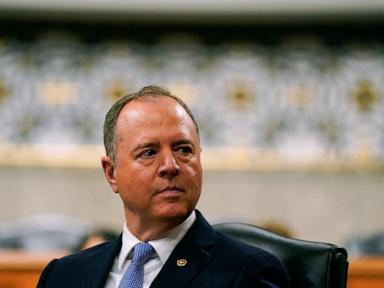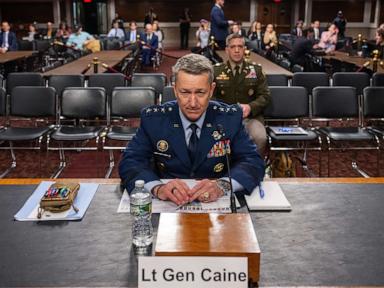Senate Republicans urged Donald Trump’s trade chief to negotiate deals with world leaders in a hearing on Capitol Hill Tuesday morning, signaling, albeit gently, that they are eager for an end game in the president’s market-roiling trade war.
Senate Finance Chair Mike Crapo (R-Idaho) opened the hearing by pressing U.S. Trade Representative Jamieson Greer on the administration’s “objective” for his sweeping “reciprocal tariffs” that are scheduled to go into effect first thing Wednesday, saying he hoped the goal was expanding trade and opening up markets for American exporters.
Sen. James Lankford (R-Okla.) asked for a timeline of how long the tariffs will be in effect. Sen. Ron Johnson (R-Wis.) emphasized trade deficits weren’t always bad. Sen. Steve Daines (R-Mont.) said he was concerned about inflation. Sen. Todd Young (R-Ind.) tried to pin down whether there is any way of measuring whether the tariffs are working. Sen. Thom Tillis (R-N.C.) said he didn’t understand the logic of the administration’s strategy.
“I’m just trying to figure out whose throat I get to choke if it’s wrong, and who I put up on a platform and thank them for the novel approach that was successful if they’re right,” Tillis said.
Greer provided little clarity for Republicans grasping for assurances that the Trump administration was actually seeking to open new markets. While Trump has signaled that he’s moving forward with negotiations with some Asian countries, Greer gave little indication that the administration will be able to strike any deals before high tariff rates for more than 50 countries and the EU kick in at midnight.
He said the ultimate goal was to produce more goods in America, but that he also hoped to open new markets and bring more revenue into U.S. government coffers. He said some countries would face tariffs for the next four years, others may be able to negotiate them away. He said the tariffs would help to create new jobs, but then acknowledged that many of the new factories would depend on automation.
“It’s going to be country by country. There are going to be some countries where they’re not able to address their non-tariff barriers or their tariffs or the deficit fully and there will be others who I think will be able to do that,” Greer said. “We need to reshore manufacturing, we need to get rid of our agricultural trade deficit and we need to make sure that if countries are going to trade with us, it needs to be on a reciprocal basis.”
Democrats seized on that uncertainty — which has unsettled the stock markets and sent businesses and world leaders scrambling — to argue that Trump is cratering the global economy.
“What is the plan?” asked Sen. Ron Wyden (D-Ore.). “In the past week, the White House has been all over the map when it comes to this question.”
Lawmakers on both sides of the aisle pressed the Trump administration to establish a process so their constituents — many of them small businesses — could request exclusions from the tariffs so they can continue importing a product or input they need from overseas duty-free.
As Lankford noted, in the short-term many small businesses “don’t have a lot of options” for sourcing certain products in the U.S. “We don’t ...































